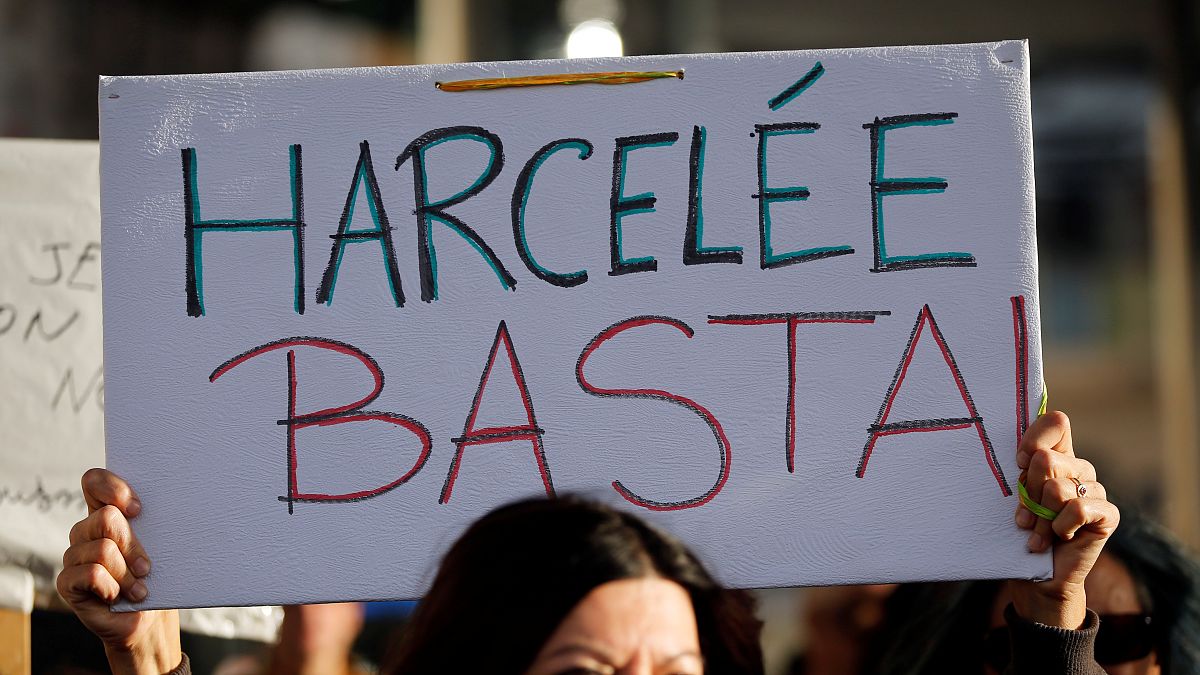Are on-the-spot fines for sexual harassment in the street a good idea? The French government plans a new law but some feminist groups believe it might be unenforceable and counterproductive.
A series of proposed measures in France against sexual violence including possible on-the-spot fines for “sexist insults” in the street have strong public backing – according to at least one survey – but have brought criticism from some legal and feminist groups.
The government says 10,000 extra police officers who are being recruited will be able to enforce the penalties, which could be between €90 and €750, for the planned new offence.
Unveiling a new bill against sexual and sexist violence, Gender Equality Minister Marlène Schiappa said fines could reach €1,500 in the case of aggravating circumstances and €3,000 for repeat offenders.
“It is crucial that the laws of the republic make it clear that it is not allowed to harass or intimidate women… whether in the public space, on public transport or online,” Schiappa told a news conference. “There can be no lawless zones.”
The minister has said previously that street harassment would cover situations such as asking a woman for her phone number a dozen times when she has made clear she is not interested.
Critics have questioned how on-the-spot punishments could be enforced. “94% of complaints for sexual harassment fail. The priority should be to enforce existing laws rather than create new ones which are unenforceable in reality,” tweeted Le Groupe F, which campaigns against sexual and sexist violence against women.
'Symbolic value'
Other comments on social media have suggested that a new offence of “sexual insult” might lead to more serious crimes being classed as such, and thus downgraded.
A government spokesman acknowledged it would be difficult for police to catch offenders red-handed. However, Marlène Schiappa said the measure would have a “symbolic value” and could act as a deterrent.
“Our goal is not to impose as many fines as possible. If the simple fear of the presence of the forces of law and order means that there is less harassment in the street, we will have made immense progress,” the minister explained.
Police would be trained in identifying street harassment, and along with fines, offenders would be able to go on courses – at their expense – against molestation and sexist and sexual violence, she added.
President Emmanuel Macron has said the bill is meant to ensure that “women are not afraid to be outside”.
The conservative opposition party Les Républicains (LR) criticised the government’s plan for failing to tackle “radical Islamism”. “To refuse to link women’s rights to the problem of increasingly withdrawn communities and radical Islamism, is to refuse to tackle efficiently street harassment and sexual segregation which is developing in some districts,” said an LR party spokeswoman Lydias Guirous.
Row over sexual freedom
The Harvey Weinstein affair and #MeToo movement – and its French equivalent #BalanceTonPorc (“Get rid of your pig”) prompted 100 women including actress Catherine Deneuve to write an open letter in Le Monde newspaper in January, denouncing a feminist movement that espoused a “hatred of men and sexuality”.
The letter prompted fierce debate in France. “We already find it enormously difficult to make young girls understand that a man rubbing his penis against them in the metro is an assault,” Marlène Schiappa said, describing such views as “dangerous”.
Deneuve and the others – while agreeing the exposure of sexual violence against women in the wake of the Weinstein affair was necessary – defended the concept of seduction and the “freedom to bother”, and argued that far from liberating women, the #MeToo backlash tended to portray them as eternal victims.
Speaking last year, France’s gender equality minister denied that punishing street harassment would “kill the culture of the ‘French lover’”.
“We want to preserve seduction, chivalry and French-style love, by saying what is key is consent… we can seduce, talk, but if someone says ‘no’, it’s ‘no’ and it’s final,” Schiappa said.
Online harassment and rape reporting
The bill – which the French government hopes will be approved by parliament before the summer – will also introduce tougher sanctions for group harassment online. “Every single person who is taking part will have to answer for it, even if they just sent a few tweets,” Marlène Schiappa said.
The legislation also includes plans to lengthen the time period during which underage victims of rape will have to file a complaint, from 20 years after they turn 18, to 30 years – in other words, until they reach the age of 48.
Criticism from influential bodies, including the main magistrates’ union and the Council of State, has led to one key element of the bill being watered down. A presumption of non-consent concerning sexual acts involving children under 15 with an adult has been withdrawn. Instead, the text envisages tougher punishments for offenders.
Two court cases, where 11-year-old girls had been judged to have given their consent, had attracted much media attention.
The French government’s bill appears to have strong public support. According to an opinion poll by Ifop, more than nine out of ten people said they were in favour of penalising street harassment, with a large majority also in favour of other key measures.


